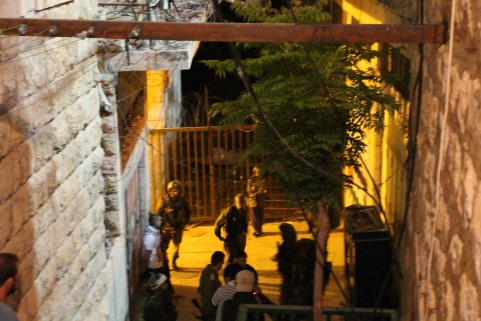Tag: Beit Hadassah
-
Settler attack instigates clashes in Hebron, one Palestinian shot with live ammunition
6th December 2013 | International Solidarity Movement, Khalil Team | Hebron, Occupied Palestine This afternoon in Hebron, approximately three illegal settlers, standing on the same roof as several Israeli soldiers, threw stones at Palestinian homes and cars in the old city. This act of aggression caused clashes to break out between Palestinian youth and Israeli forces,…
-
Palestinian man and his 3-year-old niece assaulted by Israeli soldiers
3rd October 2013 | International Solidarity Movement, Khalil Team | Hebron, Occupied Palestine On Tuesday 2nd October local Khalil shop owner Abed Sider and his 3-year-old niece were hospitalised after being assaulted by several soldiers. On the day of his birthday at 6:30pm, Abed had his home invaded by five Israeli soldiers who had come to…
-
The implications of arbitrary Israeli military night raids in Al Khalil
by Mira, Rune and Paige 19 March 2012 | International Solidarity Movement, West Bank With the change of the Israeli army brigades last week, it has not been quiet in Al Khalil. It seems like the new soldiers are using the city as a training field. It started about one about a week ago, on Sunday…



